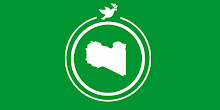 (image courtesy of currentweek)
(image courtesy of currentweek)WikiLeaks founder Julian Assange has recently come out saying the popular social-media network Facebook is a huge treasure trove of info that is essentially a spying machine and tool for the U.S. government. I mean come on, its one of the most global comprehensive database on personal information just ripe for the picking by major government agencies, especially in the intelligence community. It shouldn`t be a surprise to think the intelligence community doesn`t already have access to facebook with or without facebook directly knowing. With technology becoming more and more electronic and information being compartmentalized, it is now becoming more accessible to people who are able to access it.
Facebook being one of the most or possibly the greatest social-media service currently till another comes, does have it`s drawbacks. People just don`t realize that with a huge treasure trove of personal info just out there in web space, people in the intelligence would would want immediate access to it to track people, profile them, create bio`s on them...and Julian Assange would know. If the government was truthful to the American people then WikiLeaks wouldn`t have to exist to expose the secrets they hide from us. Nothing is transparent and our beloved President Obama who campaigned and championed the fact of government transparency has obviously failed on that task, as well as others too like closing down Guantanamo Bay and the resolution to the 2 current wars!
Read the Dailynews article (5/2/11): WikiLeaks founder Julian Assange rails against Facebook, says its spying tool for U.S. government
View also: RT News America interview with CNet correspondent Declean McCullagh concerning Assange`s facebook 'spying machine' claim (5/4/11). In an exclusive interview with RT, Wikileaks founder Jullian Assange recently called Facebook the "most appalling spying machine that has ever been invented." According to Assange, Facebook exists as "the world's most comprehensive database about people...all sitting within the United States." Further, US intelligence has an interface to access that data at any time, he says. Is he right? CNet correspondent Declean McCullagh thinks he probably is, though no evidence has so far been able to support his argument. If he is right, who will be able to access this information and under what conditions? - RT America




















































































































No comments:
Post a Comment